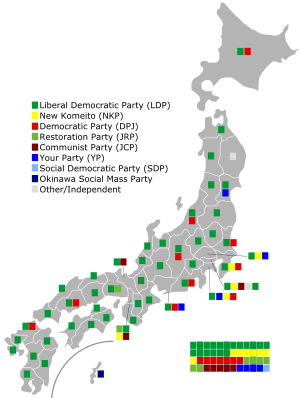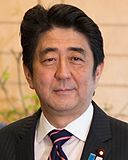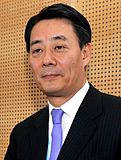Japanese House of Councillors election, 2013
|
|
||||||||||||||||||||||||||||||||||
|---|---|---|---|---|---|---|---|---|---|---|---|---|---|---|---|---|---|---|---|---|---|---|---|---|---|---|---|---|---|---|---|---|---|---|
|
||||||||||||||||||||||||||||||||||
|
121 (of the 242) seats in the House of Councillors |
||||||||||||||||||||||||||||||||||
|
||||||||||||||||||||||||||||||||||

Seats won by parties
|
||||||||||||||||||||||||||||||||||
|
||||||||||||||||||||||||||||||||||
Masaaki Yamazaki
Liberal Democratic
The 23rd Elections to the House of Councillors (第23回参議院議員通常選挙 Dainijūsankai Sangiingiin Tsūjōsenkyo?, "23rd regular/ordinary election of members of the House of Councillors") for the upper house of the National Diet, the legislature of Japan, was held on July 21, 2013. In the last election in 2010, the Democratic Party of Japan (DPJ) remained the largest party, but the DPJ-led ruling coalition lost its majority. The House of Councillors is elected by halves to six year terms. In 2013, the class of Councillors elected in 2007 was up.
Japan had been in a "twisted parliament" situation since 2007, in which neither major party controlled both houses of the Diet of Japan, leading to political paralysis on a number of issues. Shinzo Abe led the Liberal Democratic Party to victory in the December 2012 general election after several years in the opposition. In campaigning to win control of the House of Councillors, Abe sought to resolve the "twisted parliament" problem for the next three years.
...
Wikipedia


